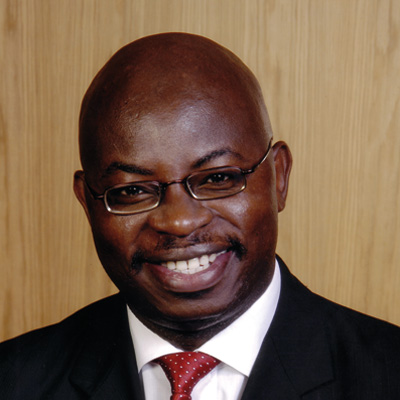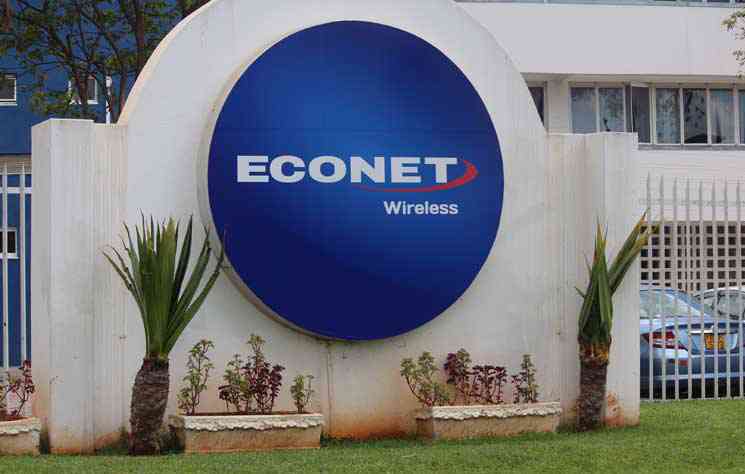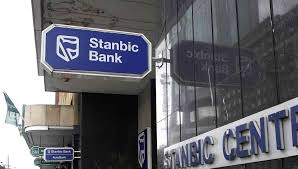
THE Monthly Financial Sector Bulletin (MFSB) publishes “The Microfinance Interview” a monthly question-and-answer which engages key stakeholders of the microfinance (MFI) sector such as funders, service providers, development partners and regulators amongst others on issues of topical and mutual interest. This instalment is on the Escrow Group, a service provider to the microfinance sector with offices in Zimbabwe and strong pan-African credentials.

Eliah Sarayi (ES) the head of group sales and marketing talks to NewsDay’s financial columnist Omen Nyevero Muza (ONM) about the Escrow Group and its international links, its target market, its products and services and their uptake as well as the company’s current challenges and opportunities.
ONM: Tell us a little about the Escrow Group?
ES: The Escrow Group is a diversified group offering Alternative Banking Solutions, Securities Trading Platforms, Registry Services and Technology Solutions. We are an enabler, operator and service provider to financial and capital markets with a strong emphasis on financial inclusion.
ONM: What type of institutions do you target in Zimbabwe?
ES: The group, through the strategic business units, targets all players in the financial and capital markets and these include securities dealers, stock exchanges, financial institutions, MFIs as well as savings and credit cooperative societies.
ONM: Briefly explain the nature of your credit management system available to financial institutions and MFIs and its key benefits or strengths.
ES: The Escrow Credit Management System provides financial institutions and MFIs with the tools and information to manage and monitor all lending processes from loan origination to repayment. This includes Know Your Customer verification, workflow management, credit rating and scoring. The system also caters for various levels of credit recommendations and approvals overseen by management to measure quality, efficiency and increase in productivity. Apart from loan processing, the system handles automated disbursements, repayments and collections making the entire process electronic, swift and secure with detailed reports and audit trails. The system comes with a fully functional mobile application that enables users to initiate loan application on the go.
- Chamisa under fire over US$120K donation
- Mavhunga puts DeMbare into Chibuku quarterfinals
- Pension funds bet on Cabora Bassa oilfields
- Councils defy govt fire tender directive
Keep Reading
ONM: Sounds very comprehensive. So, to what extent has your service been endorsed by financial institutions in Zimbabwe?
ES: The response from the market has been overwhelming since we launched the system. Many financial institutions and MFIs have adopted our system for their entire credit operations.
ONM: Is your credit management system capable of integrating with the regulator’s systems for reporting purposes?
ES: Escrow’s credit management system is fully compliant with the latest RBZ report pack which can be produced at the click of a button. The system can be easily integrated to the regulator’s system for purposes of surveillance and reporting through standard Application Programme Interfaces (APIs).
ONM: Increasingly, MFIs need the services of credit reference bureaus due to the high levels of default in the credit markets. To what extent is your system API-friendly when it comes to integration with credit reference bureaus?
ES: The system fully supports the global trends in credit risk management. To this end, the credit management system comes with a built-in risk and assessment management module based on the BASEL III framework that seeks to strengthen the regulation, supervision and improve risk management of the financial sector. The system is open-ended to integrate with any alien systems through standard APIs including the credit reference bureaus for purposes of exchanging knowledge bases to feed into the system’s decision support engine.
ONM: Mobile money platforms can enable MFIs to provide financial services more cost-effectively than the physical branch channel. In what way does your system used by MFIs enhance this capability?
ES: Financial inclusion is one of the major aspects that motivates and drives our system development models. As such, we embrace cost effective measures that support loan disbursements and repayments through mobile wallets. This improves participation of more people and lowers transaction costs using non-physical branch channels of mobile money.
ONM: What other integration capabilities does your system possess for the purpose of serving the microfinance sector?
ES: Our system comes with an in-built and fully-fledged accounting system. However, users have two options, namely, they can opt to make use of the built-in accounting module or integrate to other alien accounting packages such as Pastel, Business Books or Quick Books provided the alien systems do support standard APIs. Some financial institutions require integration with their Core Banking Systems to share mainstream banking data with the Credit Management System. Our system can be integrated with all major mobile platforms like the USSD, SMS platform and native applications running on Android, IOS, Windows Apps. This allows notifications and complete interactions with the users on all stages of their transactions.
ONM: How would you rate your system in terms of its capability to handle a growing amount of work, or its potential to be enlarged in order to accommodate that growth? We are talking about scalability here.
ES: This credit management system was built to support growth and complexity of the financial sector in mind. The development model used promotes both full capacity utilisation and scalability projections on a 10-year lead time. The system uses a renowned Relational Database Management System that is capable of storing and retrieving millions of records with no effect on performance. The multi-user and multi-protocol model supports gradual or abrupt growth patterns by simple investments in high capacity hardware.
ONM: What do you consider to be your biggest challenges in relation to servicing the microfinance sector?
ES: The diversity of credit processes in this industry results in user-specific customisations which tend to prolong the implementation timeframes. Although we have managed so far, we would be happier if the users standardise credit processes that require minimum customisations.
ONM: And opportunities. Do you see any opportunities in relation to the microfinance sector?
ES: The opportunities in this sector are countless and these include the emergency of mobile-based banking channels to enhance efficiencies in the industry. The distinction between MFIs and mainstream banks is also slowly but surely disappearing as MFIs increase their product range and target clients. Our operations in East Africa have exposed us to more products and services which the local market can adopt. The good thing is that our systems are already geared up for such developments.
ONM: Can you explain the Escrow Group’s international links or Pan-African credentials.
ES: The Escrow Group is a pan-African company and we have realised business and partnerships potential in East and Southern Africa. We are currently making progressive inroads into West Africa. We have a passion for Africa and a great understanding of the continent’s challenges, needs and potential. We believe that solutions to Africa’s challenges can be found within the continent and it is our desire to take an active part in the growth and transformation of business in Africa. The company has offices in Zimbabwe and its systems are now running in 7 African countries namely; Kenya, Malawi, Zimbabwe, Zambia, Botswana, Tanzania, Swaziland.
ONM: Anything else we haven’t discussed that you would like our readers to know?
ES: The group understands the dynamics of the ever-changing technology industry and thus we are continuously developing our systems to meet these dynamics. In effect, there are very exciting projects for both the capital markets and financial institutions and MFIs that our group is working on as we extend our footprint further across the region. We will be make announcements of these innovations soon.
Omen N. Muza is the founder and editor of the MFSB. You can view his LinkedIn profile at zw.linkedin.com/pub/omen-n-muza/30/641/3b8 or initiate contact on [email protected].











